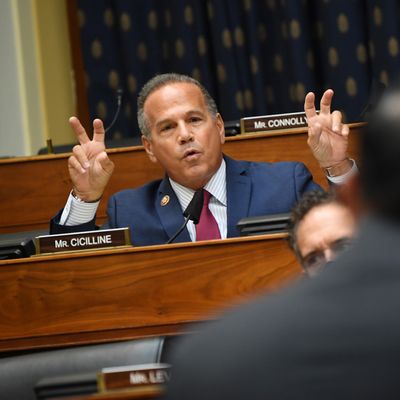
Buried in the one of the most chaotic news cycles of the year, earlier this week the House Judiciary Committee published a report based on its 15-month investigation into the antitrust potential of tech’s Big Four: Google, Apple, Facebook, and Amazon. “To put it simply, companies that once were scrappy, underdog startups that challenged the status quo have become the kinds of monopolies we last saw in the era of oil barons and railroad tycoons,” the 449-page report from the Antitrust Subcommittee states. “They not only wield tremendous power, but they also abuse it by charging exorbitant fees, imposing oppressive contract terms, and extracting valuable data from the people and businesses that rely on them.”
On the most recent episode of the New York podcast Pivot, co-hosts Kara Swisher and Scott Galloway consider the massive investigation and why the firms would be smart not to push back on antitrust actions that are now looking inevitable.
Kara Swisher: To recap, the House Democrats proposed a massive overhaul of U.S. laws that could make it easier to break up giant tech companies — probably all companies, for that matter. But according to the New York Times, there is disagreement among Democrats and Republicans on how to regulate these firms; Republicans thought that was a nuclear option.
So what do you think about all this?
Scott Galloway: The report was very simple and straightforward. Facebook has a monopoly. Amazon abuses its retail partners. I mean, it just kind of stated the obvious question of “What actually happens today?” But it was simple. It was elegant. It was common sense.
Subscribe on:
Swisher: So what do you think will happen?
Galloway: I’ve had my heart broken around this several times, but I do think there’s a lot of momentum. It feels like something is going to happen. I think other than Zuckerberg, who’s really going to cling to this and go to war, I think the others are going to come to some sort of accommodation or they’re going to prophylactically spend. Because I think they realized they would rather help decide how this happens than have it be done to them.
Swisher: They should go along with it, and their stocks will go up.
Galloway: So if Bezos becomes the largest shareholder in the most valuable company in the world — a newly spun cloud company. That’s not the worst thing in the world to happen to him. If, all of a sudden, YouTube trades on its own or Google Cloud trades on its own, that’s not the worst thing to happen to them, either. I had previously predicted that they might come to some sort of agreement before the election. Something that Bill Barr and Donald Trump can wave as some sort of October victory. Nevertheless, I think it’s coming. And it will be far bigger than any prior intervention around antitrust.
Swisher: We need to overhaul the antitrust laws to really reflect the way that companies operate today. And it’s not, by the way, just tech. There’s all kinds of weird monopolies in strange places.
Galloway: One thing people don’t realize is the slowness of this. The legislating, the investigations, the strong-arming back and forth over negotiations over how it’s going to go down. I do think these companies understand, except for Facebook, that this is going to happen to them. Their goal now should be to figure out what they would prefer of the inevitable.
Swisher: Senator Mark Warner is starting to take a more active role, being more vocal. And I think I like him as their reasoned, thoughtful voice on technology. I also think the really interesting, tricky one is going to be Apple.
Galloway: I don’t think, given all the other problems we have, politicians want to fight this one as much. We have to have the companies be part of this, as well as consumer groups, politicians, and citizens. And they really need to have these antitrust actions reflect how tech firms are working today.
Pivot is produced by Rebecca Sananes. Erica Anderson is the executive producer.





























